SUMMARY
This is AI generated summarization, which may have errors. For context, always refer to the full article.
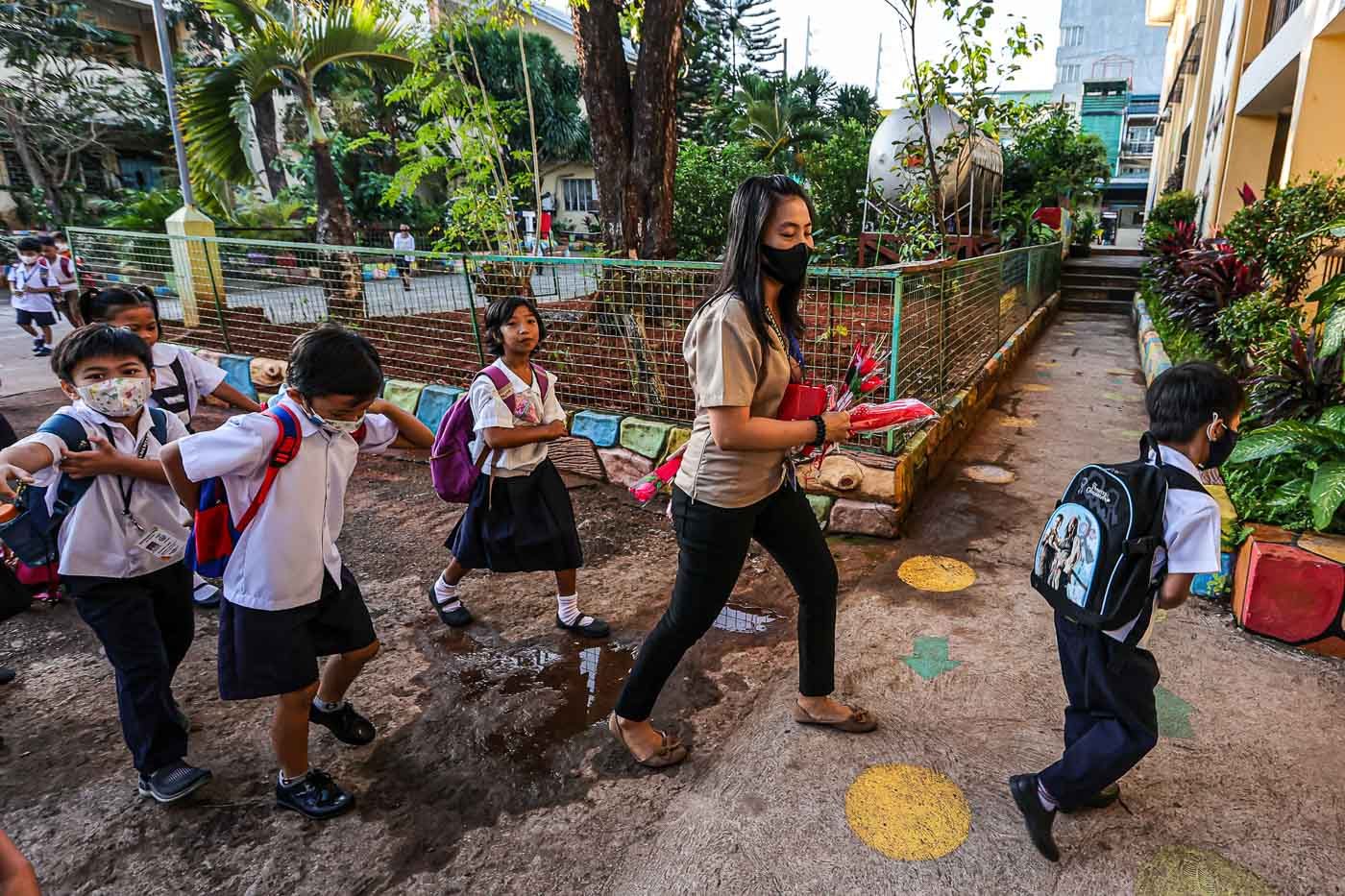
MANILA, Philippines – The House of Representatives’ committee on education and culture approved on Wednesday, May 17, a bill that seeks to protect teachers from wrongful accusations of child abuse.
The bill, which consolidated House bills 364, 549, and 6940, provides for the creation of guidelines that would define what constitutes child abuse, thereby protecting teachers from lawsuits that may arise from parents who think their modes of classroom management are abusive.
Here are some salient features of the bill.
How teachers may be wrongfully accused
Article 218 of the Family Code gives schools, administrators, and teachers “special parental authority and responsibility” over minors while they are under their supervision, instruction, or custody. “Substitute parental authority” is also provided to teachers and professors in Article 349 of the Civil Code.
“These legal provisions could only mean that the scope of their duties include not only teaching, but as well as disciplining to ensure the good behavior of their students in the school, and even outside school whenever there are school-sanctioned activities,” reads the explanatory note in the version of the bill filed by OFW Representative Marissa “Del Mar” Magsino.
Because of this, when children misbehave or cause trouble while in school, teachers and the school would be liable, according to the bill. Magsino writes that “too clingy” parents may step in, and, with the advent of technology, stories posted online about teachers’ discipline methods may expose teachers to “online attacks and malicious and false imputations.”
Fully discharging their duties then becomes like walking on eggshells for teachers. “Instead of confidently helping the parents and the state in rearing law-abiding and good citizens of the land among the youth, teachers and school personnel would now think twice before exercising their duties – lest they be the next social media antagonist in somebody else’s version of the story,” Magsino adds.
Support mechanisms
The progressive Makabayan bloc said in their version of the bill that teachers lack institutional support when it comes to standards of permissible and effective methods of instilling discipline. “While child protection is indispensable, teacher protection is also a must,” they wrote.
The bill seeks to amend Republic Act 7610 or the Special Protection of Children Against Abuse, Exploitation and Discrimination Act so that any act committed by a teacher or school staff within the scope of Department of Education (DepEd) disciplinary rules will not be deemed as child abuse.
If passed, the bill would mandate the DepEd to issue guidelines on “Implementation of Teacher Protection.” These guidelines must provide the following:
- The rights and responsibilities of teachers when it comes to discipline and classroom management, “to the end of fostering a positive school climate and safe environment conducive to instruction and learning.”
- Effective and appropriate interventions to address teachers’ violations of school rules and regulations.
- A “clear” description of the disciplinary procedure, and designation of authorities that will investigate, propose, and apply interventions.
The bill would also mandate that a sufficient number of licensed guidance counselors will serve as “support personnel” to teachers and school administrators in the realm of student discipline.
Specifically, the bill proposes that there must be one guidance counselor for every 200 students in both public and private primary and secondary schools.
What constitutes child abuse?
Under RA 7610, child abuse is the maltreatment of a child which includes any of the following, verbatim:
- Psychological or physical abuse, neglect, cruelty, sexual abuse, and emotional maltreatment.
- Any act by deeds or words which debases, degrades, or demeans the intrinsic worth and dignity of a child as a human being.
- Unreasonable deprivation of the child’s basic needs for survival, such as food and shelter.
- Failure to immediately give medical treatment to an injured child resulting in serious impairment of his or her growth and development or in the child’s permanent incapacity or death.
The DepEd’s Child Protection Policy manual, issued in 2012, prohibits school personnel from using corporal punishment to discipline students. These are “physical, humiliating, or degrading” forms of punishment, which include but are not limited to:
- Beating, kicking, hitting, slapping, or lashing any part of the child’s body, with or without a use of an instrument like canes, brooms, sticks, whips, or belts.
- Striking a child’s face or head.
- Pulling hair, shaking, twisting joints, cutting or piercing skin, dragging, pushing, or throwing a child.
- Forcing a child to perform painful acts, like holding a weight for an extended period or kneeling on stones, salt, or pebbles.
- Deprivation of a child’s physical needs.
- Deliberately exposing a child to fire, ice, water, smoke, sunlight, rain, pepper, alcohol, or forcing the child to swallow substances, dangerous chemicals, and other materials that may cause discomfort or threaten the child’s health and safety.
- Tying up a child
- Confining a child
- Verbal abuse.
- Forcing a child to wear a sign or undress themselves.
- Permanently confiscating a child’s personal property, except when such items pose a danger to the child or others.
The manual encourages positive forms of discipline, and highlights the responsibilities of teachers to support their students, as provided under the Family Code.
Consultation, dissemination of guidelines
As provided by the proposed measure, the crafting of the guidelines must include the participation of the following:
- Students
- Parents
- Teachers
- Other school personnel
- Community members
- Professionals in child behavior and social work
The DepEd will be required to disseminate the guidelines through trainings and workshops among students and families. Meanwhile, all employees of DepEd divisions will be trained annually to implement the guidelines.
At least two counterpart bills have been filed at the Senate by senators Sonny Angara and Grace Poe. They are pending at the committee level. – Rappler.com
Add a comment
How does this make you feel?
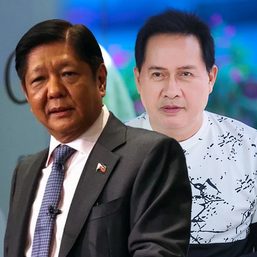

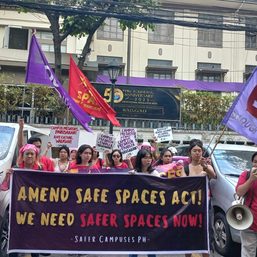
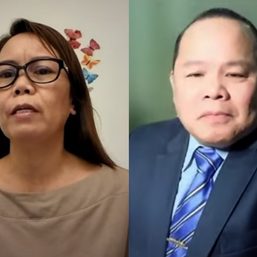
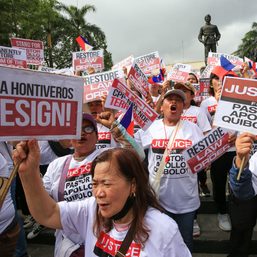
![[Rappler Investigates] It’s too darn hot!](https://www.rappler.com/tachyon/2024/05/too-darn-hot-may-2-2024.jpg?resize=257%2C257&crop=310px%2C0px%2C1080px%2C1080px)
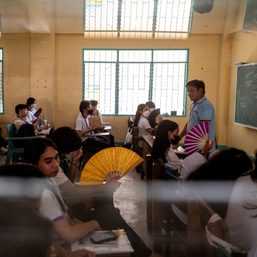
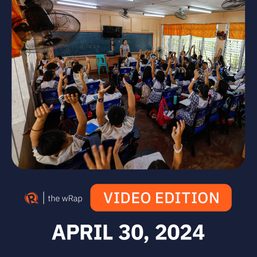
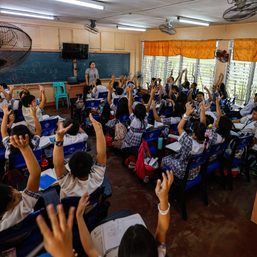
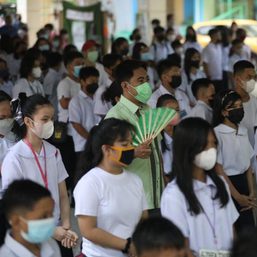

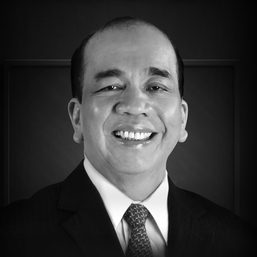

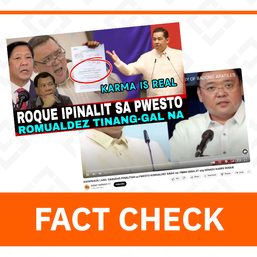
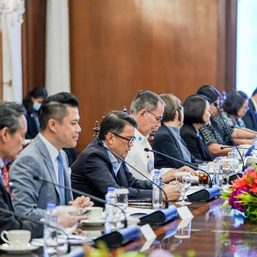
There are no comments yet. Add your comment to start the conversation.